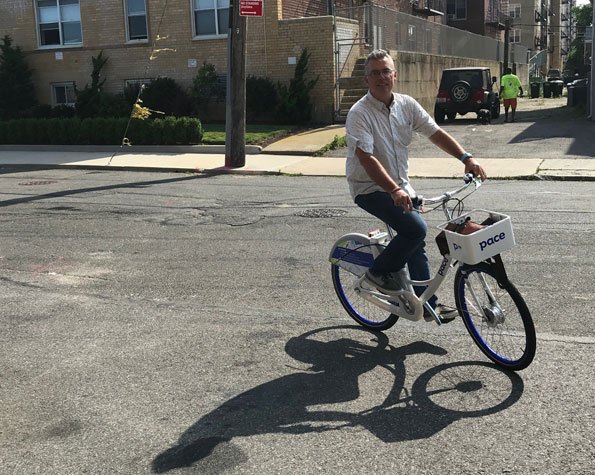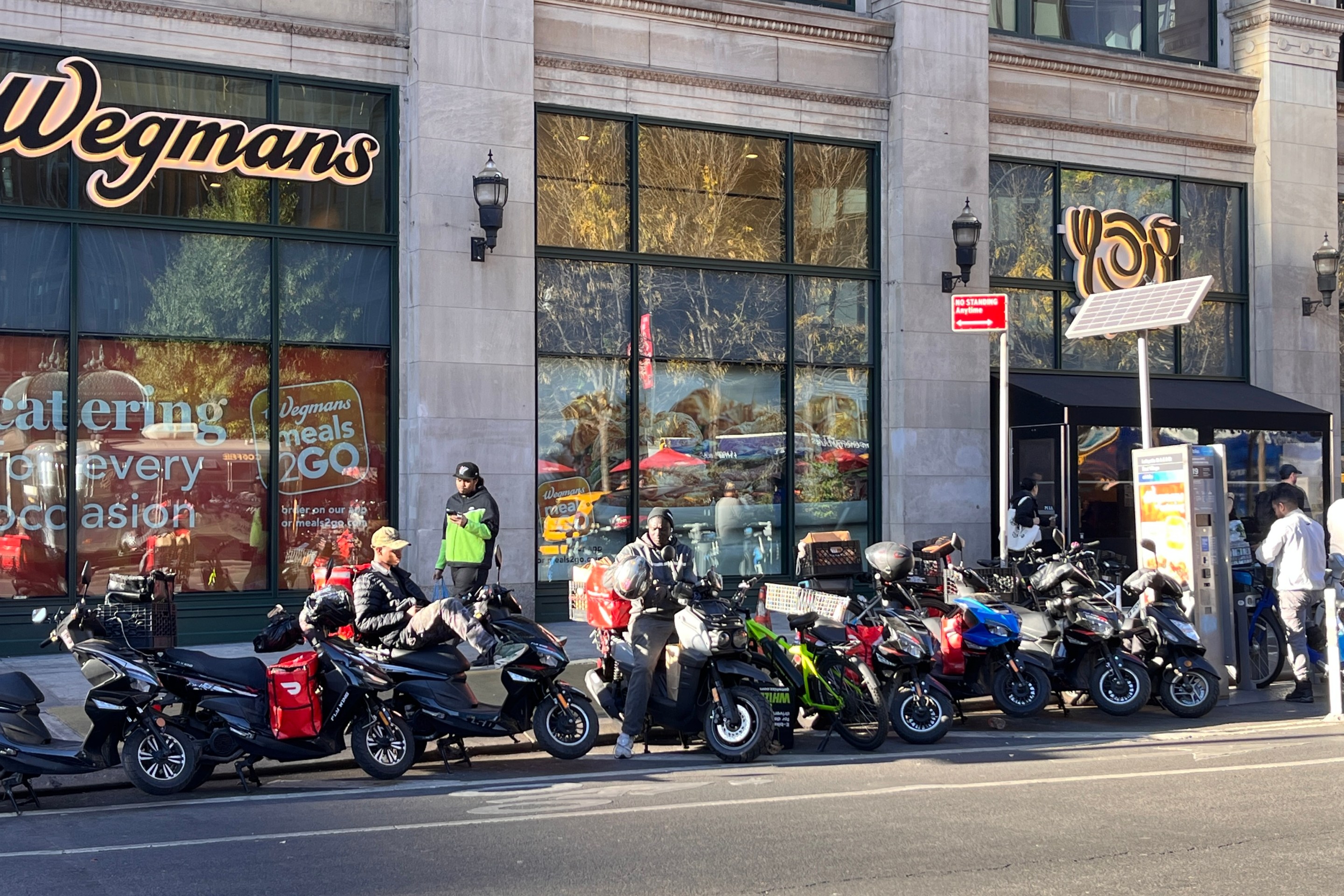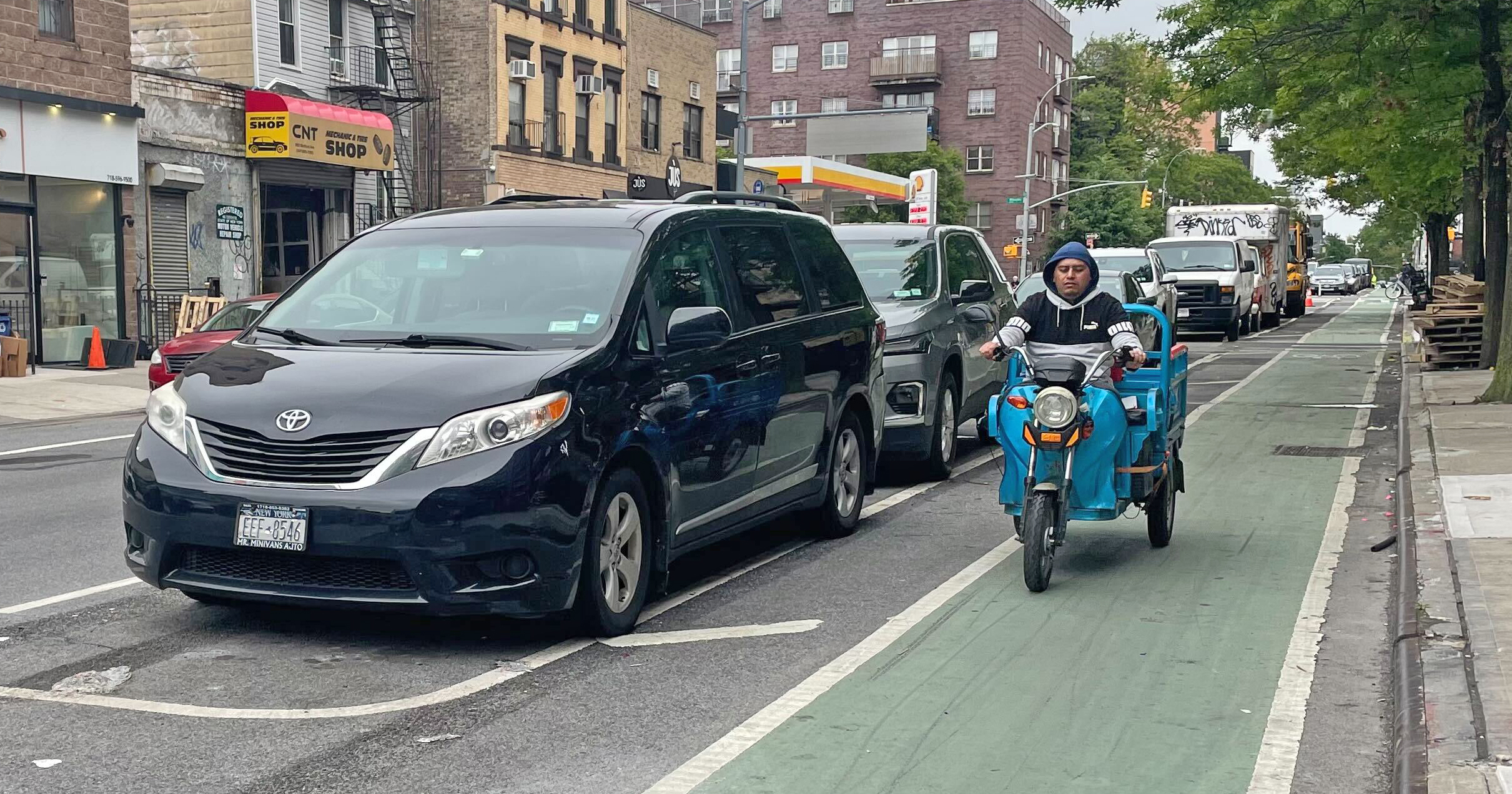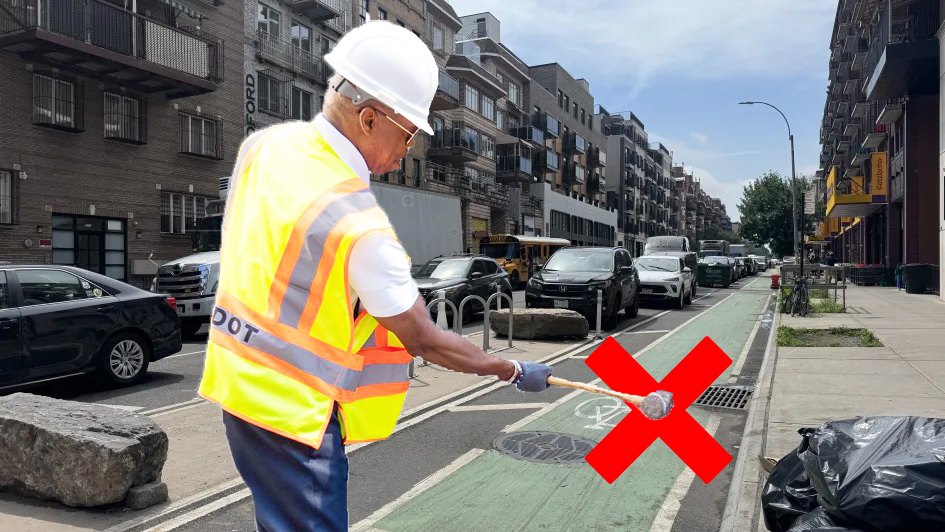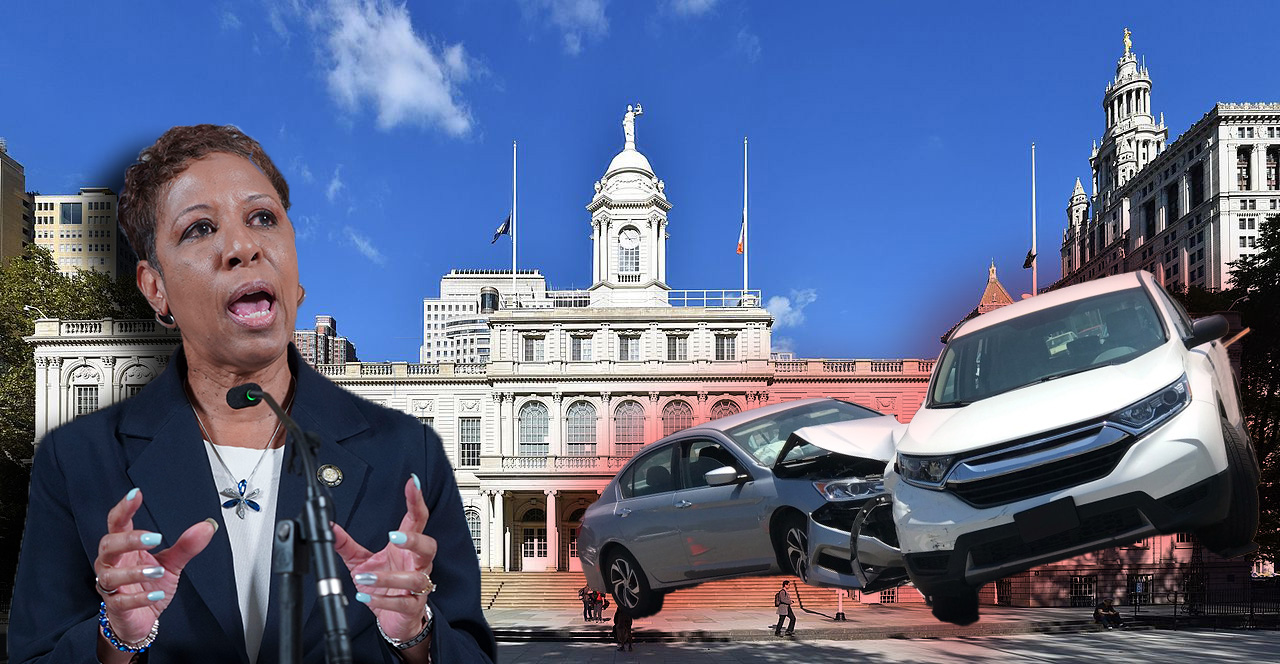They're taking the bike out of bike share.
It wasn't much more than a year ago that dockless bikes — the kind you rent for a half-hour or so to pedal to your destination — were the new tech innovation that were going to transform urban mobility and make millions for their venture capital investors.
But cities around the country have already started switching from the heavy bikes to the Next Big Thing: pedal-assist e-bikes and e-scooters.
The latest developments:
- In Seattle, Lime has informed city officials that its new contract will only offer e-bikes and e-scooters, starting in 2019, the Seattle Timesreported.
- In Washington, D.C., dockless pedal bikes have all but vanished. Mark Sussman at Greater Greater Washingtonreports that 96 percent of the dockless pedal bikes in metro Washington have disappeared, partly as a result of MoBike and ofo pulling out of the country this summer. Spin packed up in August, but says it will return with e-scooters. Jump still has a few hundred pedal bikes in D.C, but it's a small fraction of what four companies were providing just a few months ago.
- Dallas, which had a fleet of 18,000 bikes, lost them almost overnight. In August, Texas Monthly, in its obituary for the "deeply flawed" one-year experiment, showed thousands of bikes piled in a recycling center.
- Camden's bike share was initially seen as a big bike share equity success, but ended up a complete flop when, ofo, the only provider, went belly up.
- In Chicago, ofo, Lime and Spin have all pulled out bikes or switched to e-bikes. The only company still offering pedalable dockless bikes in Chicagois Pace, which has about 300 bikes.
- In Boston, Lime ended its dockless bike plans before it even started, announcing in July that it was switching to e-scooters.
What's going on?
Simply put, electric vehicles such as e-bikes and scooters are just more popular than traditional bikes, micro-mobility firms say. E-bikes are twice as popular as pedal bikes, Lime told the Seattle Times. And e-scooters are even more popular, having been checked out five times more than pedal bikes in their same markets.
The companies also blame government regulations. Many cities put caps on the number of total vehicles a company can provide. And companies are responding by shifting to the more-popular modes. Seattle limits each company to 5,000 devices, for example.
But even in Seattle, which had no public competitor and a relatively strong cycling culture, ridership for dockless pedal bike share was underwhelming. Data showeddockless pedal bikes were only being rented an average of 0.85 times a day — well below what we see in high-performing public bike share systems.
In contrast, docked bike share is still doing well, showing relatively strong year over year growth. In New York City, for example, the dock-based Citi Bike system remains popular and makes a profit, despite no public subsidies. But like many cities, New York, hit the pause button on its docked monopoly, offering pilot programs so officials could see which companies might emerge with a better system — or not (Boston was one notable exception).
"We are finding they are having difficulty keeping the number of bikes we've authorized," NYC DOT Commissioner Polly Trottenberg told my Streetsblog colleague Gersh Kuntzman two months ago, in the middle of a pilot dockless programthat included failures of one kind or another by ofo, Jump, Limeand Pace.
"And even when they have the bikes, is the app working, is the pedal-assist working? There are growing pains in New York. We are a little surprised that they haven't hit the ground with more bikes. ... Is this how these companies roll or can they do better? I don't know the future of the dockless pilot, but we have told them to bring in more bikes and do a better job. Let's see if they can do that. ... We will come back soon with what we've learned."
As Trottenberg suggested, cities faced a risk in outsourcing bike share to private firms motivated by profit — especially when many of them, such as ofo, didn't stick around.
For now, it appears, the only future in micro-mobility is e-bikes or e-scooters.
Hat tip: AsherdeMontreal
